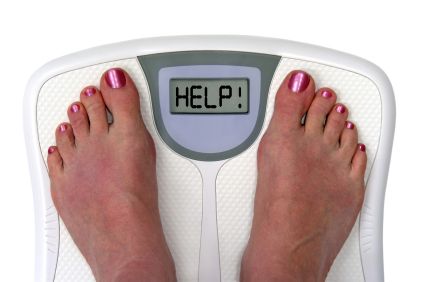Counselling for Eating Disorders
Eating Disorders are my area of expertise, backed by over 16 years of experience in private practice and with referrals from the National Centre for Eating Disorders and the Berkshire NHS Trust Eating Disorders Service, where I dedicated two years to supporting clients facing chronic and complex challenges. I collaborate with individuals who are ready to delve into the underlying causes of their compulsive overeating, self-destructive behaviors, and restrictive eating patterns. Through our sessions, you will have the opportunity to uncover key triggers and behavioral patterns that sustain your complex and often fearful relationship with food, along with your preoccupation with body image.
Engaging in counselling for eating disorders allows you to:
- discover the psychological origins of your behaviors,
- explore the emotional factors driving your urge to overeat or restrict,
- cultivate new coping strategies that fulfill your emotional needs without reliance on food,
- enhance your self-esteem and confidence, reclaim control in your life beyond food,
- reconnect with the natural rhythms of your mind and body,
- alleviate stress and anxiety while boosting your resilience to life’s challenges, and
- foster self-compassion through practices like mindfulness.
An eating disorder is marked by intense emotional and behavioral responses to food, weight, and body image, leading to harmful weight control practices such as self-induced vomiting, misuse of laxatives, diet pills, self-harm, substance abuse, extreme dieting, and strict eating rules that can severely disrupt both physical and emotional well-being. The consequences often manifest as significant personality shifts, social withdrawal, anxiety, fatigue, apathy, depression, obsessive behaviors, distorted body image, and an overwhelming fixation on food and body shape. These disorders frequently stem from early familial patterns and associations with food that persist into adulthood, perpetuating distorted thinking, emotional responses, and behaviors that are tightly linked to personal identity and interpersonal connections.
If you are ready to examine your thoughts and feelings surrounding your eating habits, understand the origins of your eating disorder, transform your relationship with food, and embark on your path to recovery, please reach out by completing the form below or visiting my contact page.

Call 07846989439
Binge Eating Disorder or Compulsive Overeating
Binge Eating Disorder or compulsive overeating is a condition that affects millions of people who have periods of uncontrolled, impulsive, or continuous eating beyond the point of feeling comfortably full. It is characterized by eating large amounts of food in a short space of time and often in secret and when not physically hungry (e.g. anything between1000-30,000 calories in one go) which is then followed by feelings of guilt, shame, despair and self-hatred.
Although Binge Eating Disorder shares some of the characteristics of bulimia including eating uncontrollably, unlike bulimia, individuals who suffer from this disorder do not purge, vomit or use laxatives to get rid of the food. Instead there may be periods of repetitive dieting or sporadic fasts as a way getting rid of calories consumed, but most typically there is no compensatory behavior. Body weight may vary from normal to mild, moderate or severe obesity which can lead to problems with blood pressure, heart disease, diabetes and a general lack of fitness or unhealthy lifestyle.
People who suffer from binge eating may struggle with depression, anxiety, loneliness and a sense of hopelessness which contributes to their compulsive and unhealthy relationship with food. Typically, food and eating is used as a coping mechanism, as a way of dealing with difficult emotions or to ease tension; although binge eating does temporarily relieve the stress of these overwhelming feelings, unfortunately it quickly spirals down to out of control and chaotic feelings. Sufferers find themselves trapped in a vicious circle of binge eating, followed by shame, low moods and despair which then lead to further episodes of binge eating.
Bulimia Nervosa
Bulimia nervosa is a serious psychological eating disorder which is characterized by a secretive ‘binge-purge-cycle’ manifested by obsessive thoughts and compulsive behaviors around food. Like all other eating disorders bulimia is essentially an anxiety disorder that involves an attempt to control food and eating as a way of coping with emotions and life, and is characterized by an obsessive preoccupation with weight and body shape. It is often linked with low self-esteem, emotional problems and stress.
Bulimia involves eating compulsively in response to some emotional hunger and then purging through self induced vomiting, abuse of laxatives, diuretics, diet pills, strict diets, fasts, vigorous exercise, or any other compensatory behavior which prevents the sufferer from gaining weight.
If you are suffering from bulimia you may be feeling trapped in a cycle of binge eating and purging; you may be experiencing a feeling of being stuck in a harmful cycle of eating very large amounts of food (more than most people would eat in one meal) in a short period of time and then doing whatever it takes to get rid of the food and calories you’ve consumed so that you can relieve your feelings of shame, guilt, self-hatred, or depression. You may be repeating this harmful behavior because you’ve probably convinced yourself that if you don’t get rid of most of the calories or food you’ve consumed, then you will become ‘grotesquely fat’.
Bulimia involves compulsive eating or binge eating, which means eating large amounts of food very quickly, in an attempt to satisfy an emotional hunger. However, as this hunger is an emotional hunger rather than a physical hunger, food cannot and does not satisfy nor fulfil it. The binge, which usually consists of ‘comfort foods’ with high levels of sugar and calories, is followed by an uncontrollable urge to use any compensatory behavior to avoid weight gain. Some individuals will also force themselves to get rid of the food or calories consumed even if they haven’t had a binge, but simply feel that they have broken their own strict dietary rules and eaten more than they should have.
Bingeing and purging in secret creates feelings of shame and guilt which, in the sufferer’s mind, can only be relieved by purging, fasting, and/or exercising. Starving or fasting for a few days after a binge is a common response and another way of making up for the vast amount of food consumed; however, voluntary starvation or fasting for even a short period of time contributes to and maintains the harmful and vicious ‘binge-purge cycle’, as the body eventually begins to fight back; the physiological hunger becomes so intense that the sufferer is forced to eat large amounts of food to satisfy the body’s ‘cry’ for vital nourishment.
Anorexia Nervosa
Anorexia nervosa means loss of appetite or restricting food and drink for nervous reasons, often to dangerous levels. Anorexia is a lost ability to satisfy physiological hunger, an inability to cope with emotions, and an intense fear of getting fat. Like all other eating disorders it is essentially an anxiety disorder which involves an attempt to control food and eating as a way of coping with emotions and the stressors of life, and is characterized by an obsessive preoccupation with weight and body shape.
Medical Supervision
Your health may be compromised if you use any extreme weight control behaviors (even if occasionally) as there are many physical complications that can arise from extreme food restriction, fasting or losing weight too quickly, from self-induced vomiting, abusing laxatives/diuretics, as well as from extreme exercise.
If you think you might be suffering from an eating disorder it’s important to talk to your GP. I will most likely ask you to consult your doctor before we begin working together and to seek regular reviews during our therapeutic work.

How can we work together?
I offer an Initial Assessment as an opportunity to meet before you commit to therapy. This also gives us an opportunity to discuss your current difficulties, goals for therapy and see whether we are the best fit for each other.
Talking Can Help
To book an Initial Assessment please call 07846 989439 or fill in the main form here and I’ll get back to you as soon as I can.
I look forward to hearing from you.
Fill in the form to send me a general email. All fields marked with a * are required and to help prevent SPAM please solve the simple sum before submitting your message.
